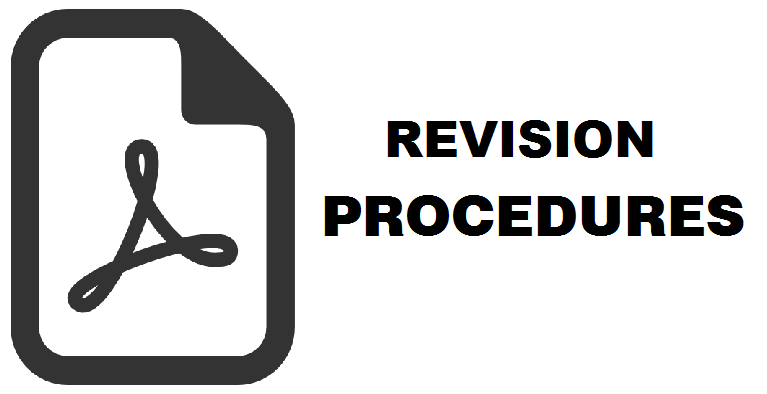DESA ADAT TENGANAN PEGRINGSINGAN DALAM PENGELOLAAN HUTAN DI DESA TENGANAN, KECAMATAN MANGGIS, KARANGASEM, BALI
Karidewi Made Putri(1*), Su Rito Hardoyo(2), Langgeng Wahyu Santosa(3)
(1) Fakultas Geografi, Universitas Gadjah Mada, Yogyakarta
(2) Fakultas Geografi, Universitas Gadjah Mada, Yogyakarta
(3) Fakultas Geografi, Universitas Gadjah Mada, Yogyakarta
(*) Corresponding Author
Abstract
ABSTRAK Bagi masyarakat adat di Desa Adat Tenganan Pegringsingan, keberadaan sebuah kearifan lokal yang berupa aturan adat atau “awig-awig” memiliki peranan yang begitu besar dalam melakukan pengelolaan hutan setempat. Hal ini terbukti dengan masih terjaganya kelestarian hutan hingga saat ini. Masalah yang muncul adalah bahwa eksistensi “awig-awig” yang telah diwariskan sejak abad ke-11 tidak hanya ditentukan oleh adanya pengakuan dari masyarakat adatnya sendiri namun juga oleh faktor-faktor internal dan eksternal yang melingkupi “awig-awig” dalam melaksanakan fungsinya.Tujuan penelitian adalah mengkaji sejauhmana efektivitas pelaksanaan kearifan lokal serta faktor-faktor yang mempengaruhi tingkat efektivitas pelaksanaannya dalam pengelolaan hutan di wilayah penelitian. Lebih lanjut penelitian bertujuan menemukan konsep persepsi masyarakat terhadap efektivitas kearifan lokal. Konsep tersebut menjadi dasar dalam menyusun strategi pengelolaan hutan berbasis kearifan lokal.Metode yang digunakan adalah kualitatif dengan metode pengumpulan data sebagian besar dilakukan melalui wawancara mendalam dan observasi, disamping interpretasi data sekunder sebagai pelengkap. Penentuan sampel menggunakan teknik purposive sampling. Analisis data secara induktif dengan metode kategorisasi. Pemeriksaan derajat kepercayaan data menggunakan teknik triangulasi sumber.Penelitian ini menunjukkan bahwa efektivitas pelaksanaan kearifan lokal dalam prakteknya secara umum masih berjalan cukup efektif meskipun substansi tiap-tiap pasal memiliki kelemahan masing-masing. Ketaatan masyarakat adat mematuhi aturan masih cukup tinggi dan pelanggaran yang terjadi tidak berpengaruh signifikan terhadap kondisi hutan. Persepsi masyarakat menghasilkan hubungan interelasi antar tiap konsep yang terdiri dari fleksibilitas “awig-awig”, mekanisme pelaksanaan “awig-awig”, partisipasi masyarakat, dan keberlangsungan fungsi hutan. Faktor-faktor internal dan eksternal yang mempengaruhi tingkat efektivitas pelaksanaan kearifan lokal menghasilkan empat kriteria efektivitas yaitu substansi “awig-awig”, pola pengelolaan hutan, pelaku yang terlibat, dan mekanisme pelaksanaan “awig-awig”. Penyusunan strategi pengelolaan hutan yang berbasis pada kearifan lokal ditujukan untuk membenahi sistem pengelolaan tradisional sehingga dapat membantu masyarakat adat dalam melakukan pengelolaan hutan secara lebih efektif.
ABSTRACT For the customary community at the customary village of Tenganan Pegringsingan, the existence of local wisdom in form of customary law or “awig-awig” is playing an important role in local forest management. It’s been proved by a well-maintained forest condition which has successfully preserved until these days. Problems are arise when the existence of “awig-awig” which was inherited since 11th century is not only determine by an acknowledgement from the customary community itself but also by some internal and external factors surround “awig-awig” in doing its functions.The aims of this research are to study how far the effectiveness of local wisdom has been carried out as well as several factors which had an effect on the level of effectiveness of local wisdom implementation in forest management over a site. Further, the aim is to discover some concepts of community perception toward the effectiveness of local wisdom. Those concepts become a basis to develop a local wisdom-based forest management strategy.This research was used a qualitative method with data collection mostly through in-depth interview and observation, in addition to secondary data interpretation as a complement. Samples were selected using a purposive sampling technique. Data were analyzed inductively using a categorization method. Review of data credibility or data trustworthiness using a triangulation-source technique.The result of this research shows that the effectiveness of local wisdom implementation in general is still going fairly effective although the substance of each clause has its own weaknesses. The devotion of customary community to the customary law is still fairly high and the violation of the law has not signified affected the forest condition. The community perception is resulting four concepts of perception which interrelate one another. Those concepts are “awig-awig” flexibility, “awig-awig” implementation mechanism, community participation, and the sustainability of forest functions. All internal and external factors that had an effect on the level of effectiveness of local wisdom implementation were resulting four effectiveness criteria which are “awig-awig” substance, forest management method, people involved, and “awig-awig” implementation mechanism. The development of forest management strategies based on the existing local wisdom are addressed to improve the traditional management system in order to assist the customary community to carry out all tasks related to forest management effectively.
Keywords
Full Text:
PDF (Bahasa Indonesia)Article Metrics
Refbacks
- There are currently no refbacks.
Copyright (c) 2016 Majalah Geografi Indonesia

This work is licensed under a Creative Commons Attribution-ShareAlike 4.0 International License.
Volume 35 No 2 the Year 2021 for Volume 39 No 1 the Year 2025
ISSN 0215-1790 (print) ISSN 2540-945X (online)








